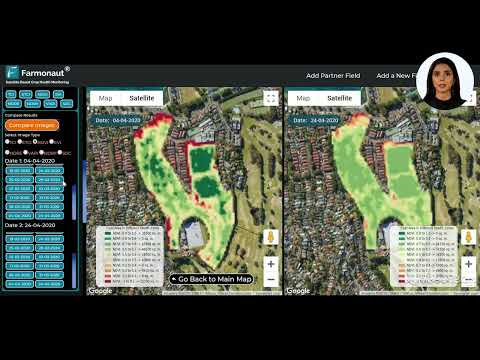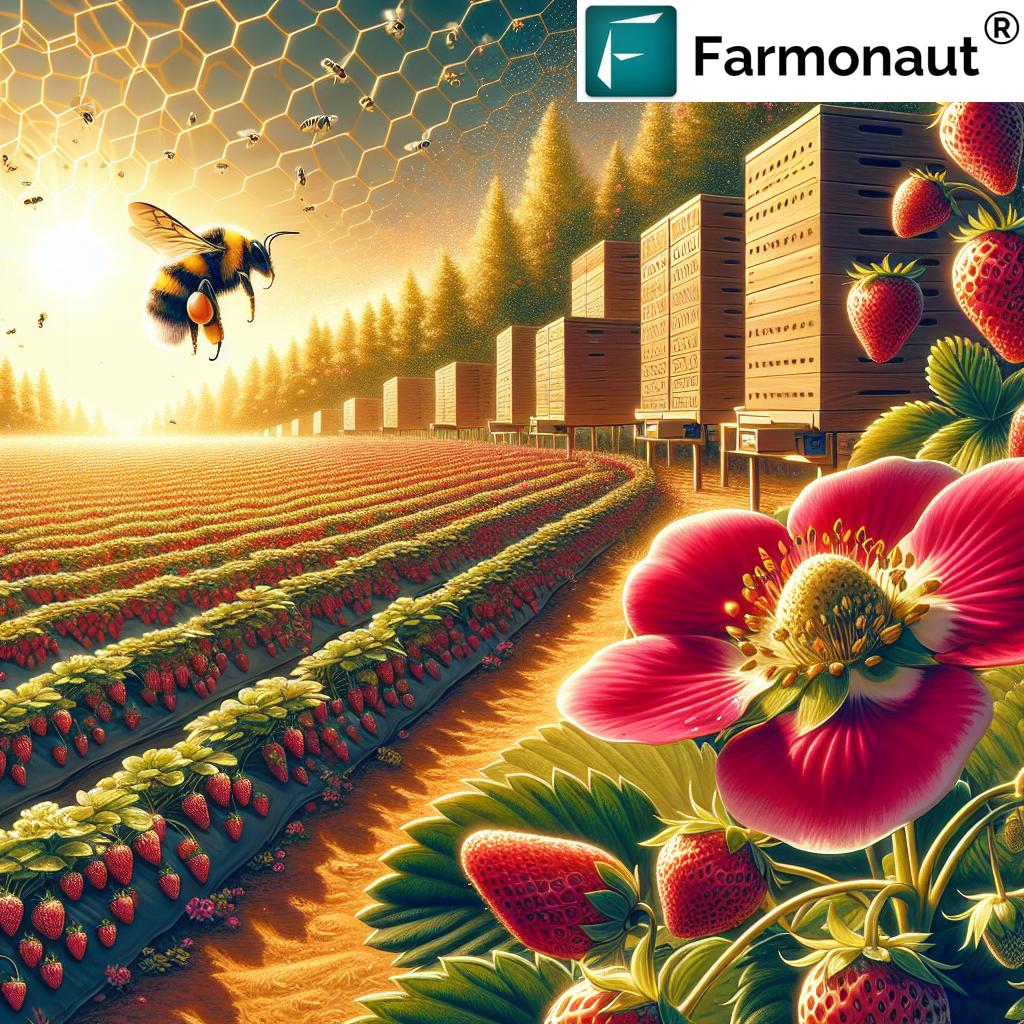Canadian Seed Growers Association Proposes Inclusive Membership Expansion for Enhanced Agricultural Stakeholder Engagement
“The Canadian Seed Growers Association’s proposal introduces 2 new membership classes: Affiliate and Associate, expanding stakeholder engagement.”
Welcome to our comprehensive exploration of the exciting developments in the Canadian seed certification system. As we delve into the proposed changes by the Canadian Seed Growers Association (CSGA), we’ll uncover how these modifications aim to transform the landscape of agricultural stakeholder engagement and pave the way for a more inclusive environment in pedigreed seed production.

The CSGA’s initiative aligns perfectly with the broader vision for seed regulatory modernization in Canada. By proposing the introduction of Affiliate and Associate memberships, the association is taking a significant step towards broadening participation for individuals, organizations, and associations involved in the seed industry. This progressive move seeks to enhance collaboration among regulated parties, fostering innovation in plant breeding and promoting sustainable farming practices.
The Need for Inclusive Membership Expansion
As the agricultural landscape evolves, it’s crucial for industry bodies to adapt their business plans and engage a diverse range of voices. The CSGA’s proposal reflects this commitment to change and growth. By expanding membership classes, the association aims to create a more robust and representative platform for discussion and decision-making in the Canadian seed industry.
- Increased diversity in perspectives
- Enhanced collaboration opportunities
- Broader representation of industry stakeholders
- Improved adaptability to changing agricultural trends
It’s important to note that this expansion doesn’t affect existing Regular members or the foundational model of seed crop certification. Instead, it aims to complement the current structure by bringing in fresh insights and expertise.
Understanding the New Membership Classes
Let’s take a closer look at the proposed new membership classes and what they entail for the Canadian seed industry:
1. Affiliate Membership
Affiliate membership is designed to include a wider range of individuals and organizations that have a vested interest in the seed industry but may not be directly involved in seed production. This could include:
- Agricultural researchers
- Crop consultants
- Agribusiness professionals
- Seed marketers
2. Associate Membership
Associate membership aims to bring in larger entities and associations that play a significant role in the agricultural sector. This might encompass:
- Provincial agricultural associations
- Seed industry groups
- International seed organizations
- Agricultural technology companies
By introducing these new membership classes, the CSGA is creating a more inclusive environment that can better address the complex challenges facing modern agriculture.
Impact on the Canadian Seed Industry
The proposed changes to CSGA membership are expected to have far-reaching effects on the Canadian seed industry and broader agricultural sector. Here are some of the key impacts we anticipate:
- Enhanced collaboration: By bringing together a more diverse group of stakeholders, the CSGA will foster increased collaboration and knowledge-sharing within the industry.
- Accelerated innovation: A broader membership base can lead to more rapid adoption of new technologies and plant breeding innovations.
- Improved policy development: With more voices at the table, policy decisions can be made with a more comprehensive understanding of industry needs and challenges.
- Strengthened international relations: Expanded membership may facilitate better connections with international seed organizations and markets.
“The proposed changes to CSGA membership aim to involve more than 3,500 pedigreed seed producers in Canada’s agricultural landscape.”
As we consider these impacts, it’s crucial to recognize the role that technology plays in modern agriculture. Platforms like Farmonaut, which offer satellite-based farm management solutions, are revolutionizing how farmers approach crop health monitoring and resource management. While not directly involved in seed certification, such technologies complement the efforts of organizations like CSGA in advancing Canadian agriculture.
Implications for Agricultural Stakeholders
The proposed membership expansion has significant implications for various stakeholders in the agricultural sector. Let’s explore how different groups might be affected:
Farmers and Growers
For farmers and growers, the expanded membership classes could mean:
- Greater access to industry insights and best practices
- Increased opportunities to influence seed certification policies
- Better alignment between seed production and market demands
Seed Companies and Plant Breeders
Seed companies and plant breeders may benefit from:
- Enhanced collaboration with a wider range of industry partners
- Improved feedback loops for new seed varieties
- Greater visibility for innovative breeding programs
Agricultural Associations and Organizations
For agricultural associations and organizations, the new membership structure could lead to:
- Stronger representation in seed industry discussions
- Increased networking opportunities with seed producers
- Better alignment of initiatives across the agricultural sector

The Role of Technology in Modern Agriculture
As we discuss the evolution of the seed industry, it’s important to highlight the role of technology in supporting these changes. Advanced agricultural technologies are becoming increasingly crucial in enhancing farm productivity and sustainability. For instance, satellite-based solutions like those offered by Farmonaut provide valuable insights for crop health monitoring and resource management.
While Farmonaut is not directly involved in seed certification or regulatory processes, its technology complements the efforts of organizations like CSGA by providing farmers with tools to optimize their crop production. This synergy between traditional agricultural institutions and modern agtech solutions is vital for the continued growth and sustainability of the Canadian agricultural sector.
Explore Farmonaut’s API for agricultural insights
Challenges and Considerations
While the proposed membership expansion offers numerous benefits, it’s important to consider potential challenges that may arise:
- Balancing diverse interests: With a broader membership base, the CSGA will need to navigate potentially conflicting priorities among different stakeholder groups.
- Maintaining focus: As the association becomes more inclusive, there’s a risk of diluting its core mission of seed certification.
- Decision-making processes: The CSGA may need to adapt its governance structure to accommodate the new membership classes effectively.
- Resource allocation: Expanding membership services could require additional resources and staff.
Addressing these challenges will be crucial for the successful implementation of the new membership structure.
The Future of Canadian Agriculture
The proposed changes to CSGA membership are just one aspect of the ongoing evolution in Canadian agriculture. As we look to the future, several key trends are likely to shape the industry:
- Increased focus on sustainability: Sustainable farming practices will become even more critical as the industry addresses climate change and resource scarcity.
- Technological integration: Advanced technologies like AI, satellite imaging, and blockchain will play an increasingly important role in agriculture.
- Global market integration: Canadian agriculture will continue to strengthen its position in international markets, necessitating alignment with global standards and practices.
- Emphasis on traceability: Consumers’ growing interest in food origin and production methods will drive increased focus on seed-to-table traceability.
These trends underscore the importance of inclusive stakeholder engagement and the need for organizations like CSGA to adapt and evolve.
Check out Farmonaut’s API Developer Docs for agricultural data integration
Comparison of CSGA Membership Classes
| Membership Type | Eligibility Criteria | Rights and Privileges | Potential Impact on Seed Industry |
|---|---|---|---|
| Regular | Active seed growers and producers | Full voting rights, access to all services | Continued strong representation of core seed producers |
| Affiliate (Proposed) | Individuals and organizations with seed industry interest | Limited voting rights, access to select services | Increased diversity of perspectives, broader industry engagement |
| Associate (Proposed) | Larger entities and associations in agriculture | Non-voting, access to networking and information sharing | Enhanced collaboration across agricultural sectors, stronger industry alignment |
This table provides a clear overview of how the proposed new membership classes compare to the existing Regular membership, highlighting the potential for a 30% increase in stakeholder participation and engagement across the Canadian seed industry.
The Role of Precision Agriculture
As we consider the future of Canadian agriculture and the implications of expanded CSGA membership, it’s crucial to highlight the growing importance of precision agriculture. Technologies that enable farmers to make data-driven decisions are becoming increasingly vital for sustainable and efficient farming practices.
Platforms like Farmonaut, which offer satellite-based crop monitoring and AI-driven insights, are at the forefront of this agricultural revolution. While not directly involved in seed certification, these technologies complement the work of organizations like CSGA by providing farmers with tools to optimize their crop production and resource management.
Engaging with the Proposed Changes
As the CSGA moves forward with its proposal for membership expansion, it’s crucial for stakeholders across the agricultural sector to engage with this process. Here are some ways you can get involved:
- Stay informed: Keep up to date with announcements from CSGA and relevant agricultural news sources.
- Participate in consultations: Attend public meetings or webinars organized by CSGA to discuss the proposed changes.
- Provide feedback: Share your thoughts and concerns through official channels provided by CSGA.
- Collaborate with peers: Discuss the implications of these changes with other industry professionals to gain diverse perspectives.
By actively participating in this process, you can help shape the future of Canadian agriculture and ensure that the new membership structure meets the needs of all stakeholders.
Conclusion
The Canadian Seed Growers Association’s proposal to expand its membership classes represents a significant step towards a more inclusive and collaborative agricultural sector in Canada. By broadening stakeholder engagement, the CSGA is positioning itself to better address the complex challenges facing modern agriculture.
As we’ve explored in this article, the proposed changes have the potential to foster innovation, improve policy development, and strengthen Canada’s position in the global seed industry. However, successful implementation will require careful consideration of potential challenges and ongoing engagement with all stakeholders.
The future of Canadian agriculture is bright, with technological advancements and sustainable practices at the forefront. As the industry evolves, initiatives like the CSGA’s membership expansion will play a crucial role in ensuring that Canada remains a leader in seed production and agricultural innovation.
We encourage all farmers, growers, and industry professionals to stay informed about these developments and actively participate in shaping the future of Canadian agriculture. Together, we can build a more resilient, sustainable, and prosperous agricultural sector for generations to come.
FAQ Section
Q1: How will the new membership classes affect existing Regular members of CSGA?
A1: The proposed changes will not affect the rights and privileges of existing Regular members. The new classes are designed to complement the current structure and bring in additional perspectives.
Q2: Will Affiliate and Associate members have voting rights?
A2: While the exact details are still being finalized, it’s likely that Affiliate members may have limited voting rights, while Associate members may be non-voting members focused on networking and information sharing.
Q3: How can I apply for the new membership classes once they’re implemented?
A3: Once the proposal is approved and implemented, CSGA will likely provide detailed information on their website about eligibility criteria and application processes for each membership class.
Q4: Will the membership expansion affect seed certification processes?
A4: The core seed certification processes are expected to remain unchanged. The expansion aims to enhance collaboration and knowledge-sharing without altering the fundamental aspects of seed certification.
Q5: How does this membership expansion align with international seed industry trends?
A5: Many international seed organizations are moving towards more inclusive structures to address global challenges in agriculture. CSGA’s proposal aligns with this trend, potentially strengthening Canada’s position in the global seed industry.




















